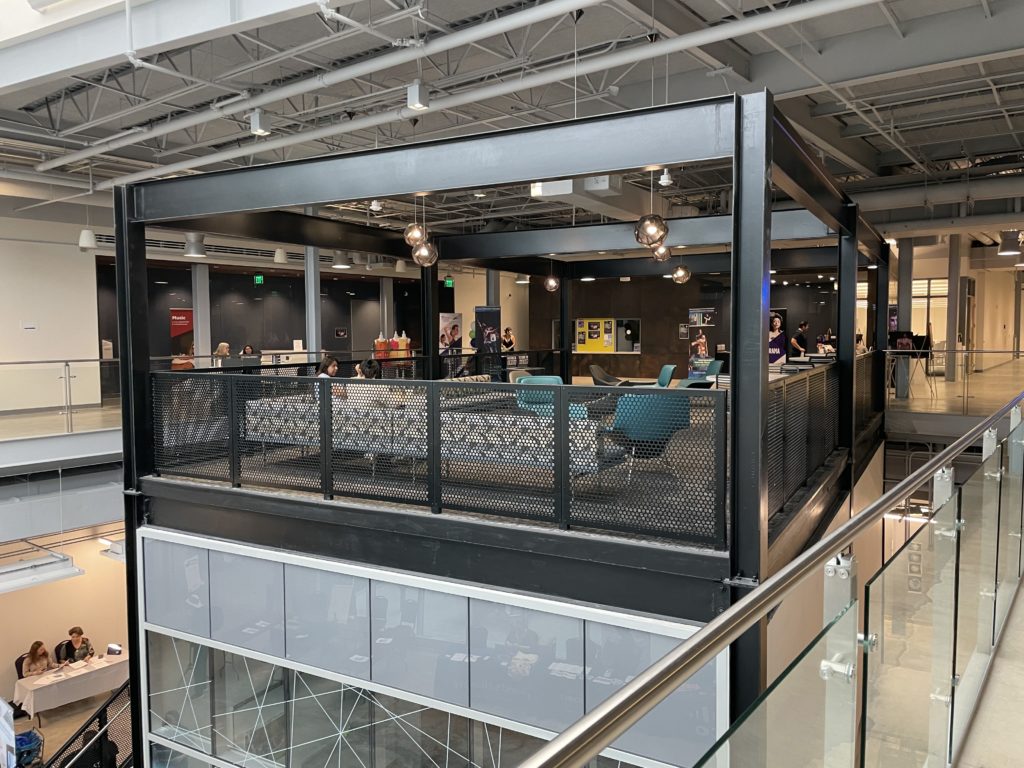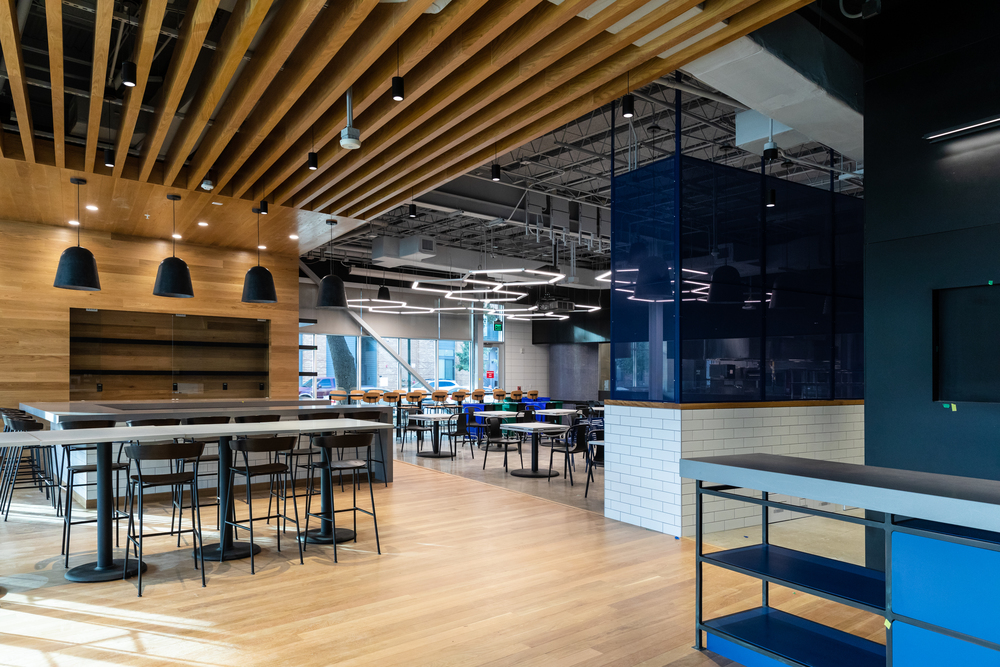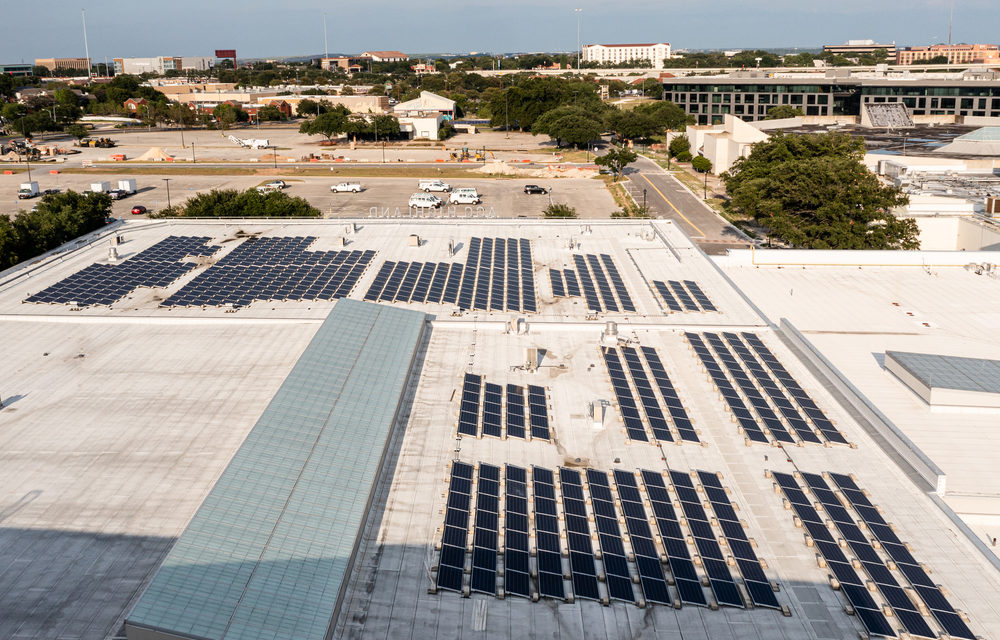ACC’s newest campus, Highland Phase 2, receives international recognition for its sustainable design and construction. The U.S. Green Building Council has awarded the campus Leadership in Energy and Environmental Design (LEED) Gold certification.
“ACC remains committed to reducing our carbon footprint and becoming a leader in sustainability efforts,” says Andy Kim, ACC Energy/Sustainability director. “LEED certification is internationally known. I am proud of the work ACC continues to do to protect the environment and reduce costs through energy efficiency, waste reduction, and water-saving efforts.”
Highland Phase 2 sustainable features include:
- 58 percent of existing mall structures reused
- More than 30 percent of new materials are made of recycled contents
- 18 percent of new materials harvested and manufactured regionally
- 90 percent of all wood products certified by the Forest Stewardship Council
- Minimized landfill use with more than 80 percent of construction waste recycled
The campus also features ongoing sustainability, with 200kW solar panels, water-saving plumbing fixtures, drought-tolerant plants, and light-colored paving and roof to minimize the heat island effect.
ACC partnered with Perkins & Will and BGKA –– Architect and Interior Design Consultant –– for the sustainable redesign. Together, the project began by salvaging materials before stripping the site for full abatement, reuse, or sale.
“Furthering the project’s adaptive reuse and sustainability goals, the design team salvaged glass from the mall’s storefronts to be repurposed as aggregate in the patched areas of the concrete floors and new sidewalks,” according to Pamela Collier, ACC project manager. “The steel removed in the cutting out of the paseo was repurposed within the mixing areas to frame special jewel boxes designed for student interaction. Additional items salvaged included a 1970s neon camera sign that is at the entry to the new Photography lab and the fiberglass larger-than-life banana split connected to the entry towards Culinary Arts.”
This is the third ACC campus to be LEED Gold Certified, with Highland Phase 1 and San Gabriel also receiving the distinction. In addition, three ACC campuses –– Round Rock, Hays, and Elgin –– are LEED-Silver Certified.
ACC currently diverts more than 50 percent of waste from landfills and is nearing its goal to become Zero Waste by 2040. The blueprint for implementing college-wide sustainability reforms was created in 2009 by the ACC Board of Trustees. Two ACC campuses — the ACC Round Rock and Elgin campuses became the first community college district in Texas to use 100 percent clean, renewable electricity.
For more information about ACC’s sustainability and green initiatives, visit austincc.edu/sustainability.
Rooftop solar panels.
Salvaged glass from the mall’s storefronts was repurposed as aggregate in the patched areas of the concrete floors.

Steel removed in the cutting out of the paseo was repurposed to frame special jewel boxes designed for student interaction.

90 percent of all wood products were certified by the Forest Stewardship Council.
The salvaged fiberglass larger-than-life banana split near the entry toward Culinary Arts.

